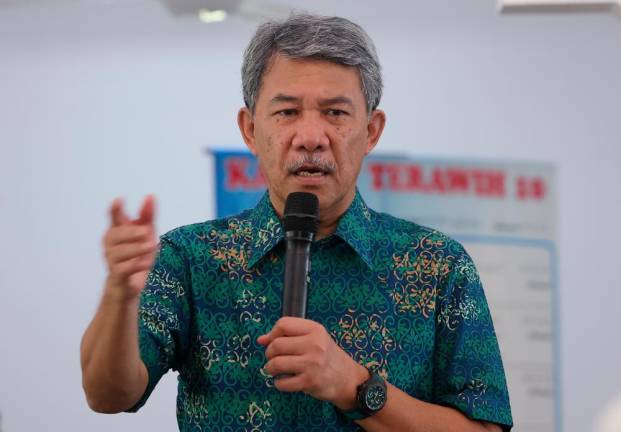KUALA LUMPUR: The government would be able to meet its debt obligation following the gradual reopening of the economy and the revitalisation of domestic consumption, said the Finance Ministry (MoF).
In a statement today, Finance Minister Tengku Datuk Seri Zafrul Abdul Aziz said economic growth is the key to ensure the government meets its debt obligation, whereby recently, Malaysia’s economy has begun seeing green shoots of recovery, attributed to effective policy measures.
According to the Minister, Malaysia’s export sector remains robust, expanding in line with the revival of global trade, while a rebounding global economy also means higher commodity prices, a key part of the nation’s trade.
“Coupled with the systematic roll-out of the National Covid-19 Immunisation Programme, targeted forward measures and strict adherence to standard operating procedures (SOPs), Malaysia’s economy is firmly moving towards recovery and revitalisation this year,” he said.
Tengku Zafrul said organisations such as the World Bank and the International Monetary Fund (IMF) are forecasting an economic rebound for Malaysia in 2021, at between 5.6 and 6.7%, and 6.5% respectively.
“With the gradual reopening of the economy, domestic consumption will be revitalised,” he said.
In the medium to longer term, Tengku Zafrul said the government remains committed to fiscal consolidation via the Medium-Term Revenue Strategy and Medium-Term Fiscal Framework.
“The proposed Fiscal Responsibility Act will review and strengthen the medium-term fiscal framework by, among others, reprioritising spending, improving our tax framework, tightening enforcement and minimising leakages,” he said.
He added that the government is currently focused on jump-starting the economy as well as addressing structural issues for socio-economic growth and resilience.
“If more debt is required to support the rakyat and businesses, rest assured that its management is underscored by a firm and transparent commitment to fiscal discipline,” he said.
According to Tengku Zafrul, debt is necessary to save jobs and support businesses, and the Covid-19 crisis had witnessed unprecedented action by governments around the world leading to substantial increases in fiscal deficit and government debt.
For instance, he said Malaysia’s swift and proactive policy response - through four economic stimulus packages amounting to RM305 billion – helped reduce unemployment to to 4.9% in January 2021 from 5.3% in May 2020.
“We had successfully placed nearly 200,000 jobs in the formal sector via Social Security Organisation’s (SOCSO) PenjanaKerjaya 2.0,” he said, adding that the government had saved 2.7 million jobs by channelling more than RM14.4 billion of wage subsidies to more than 330,000 employers.
He said the Geran Khas Prihatin provided a lifeline for at least 900,000 micro small and medium-sized enterprises (SMEs)
“As a result, the fiscal deficit increased to 6.2% of gross domestic product (GDP) in 2020, albeit lower than the average deficit for emerging market and middle-income economies of 10.3% as well as lower than the 6.7% deficit recorded at the height of the Global Financial Crisis in 2009,” he said.
As for this year, Tengku Zafrul said apart from the RM322.5 billion Budget 2021, the government also launched the RM15 billion PERMAI Assistance Package and the RM20 billion PEMERKASA programme to support the lives and livelihoods of the rakyat, ensure continuity of businesses as well as facilitate economic growth.
”All these efforts have necessitated additional debt, which has helped save jobs and businesses, and cushioned Covid-19’s impact to our GDP, limiting its contraction to 5.6% for 2020.
“This is better than several countries’ GDP such as the United Kingdom at -9.9%, the Philippines at -9.5%, the European Union at -6.2%, and Thailand at -6.1%,” he added. — Bernama













